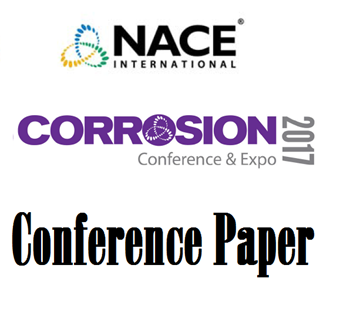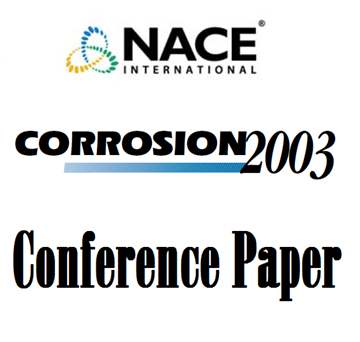Search
98411 COMPATIBILITY OF A CORROSION INHIBITOR WITH GAS SWEETENING AGENTS
Also Purchased
Guidelines for Corrosion Inhibitor Selection for Oil and Gas Production
Product Number:
51317--8842-SG
ISBN:
8842 2017 CP
Publication Date:
2017
$20.00
03337 THE TRANSPORT OF CHEMICAL INHIBITOR DURING BATCH APPLICATION
Product Number:
51300-03337-SG
ISBN:
03337 2003 CP
Publication Date:
2003
$20.00
96022 Effect of Variables on Downhole Corrosion Inhibitor Application
Product Number:
51300-96022-SG
ISBN:
96022 1996 CP
$20.00




